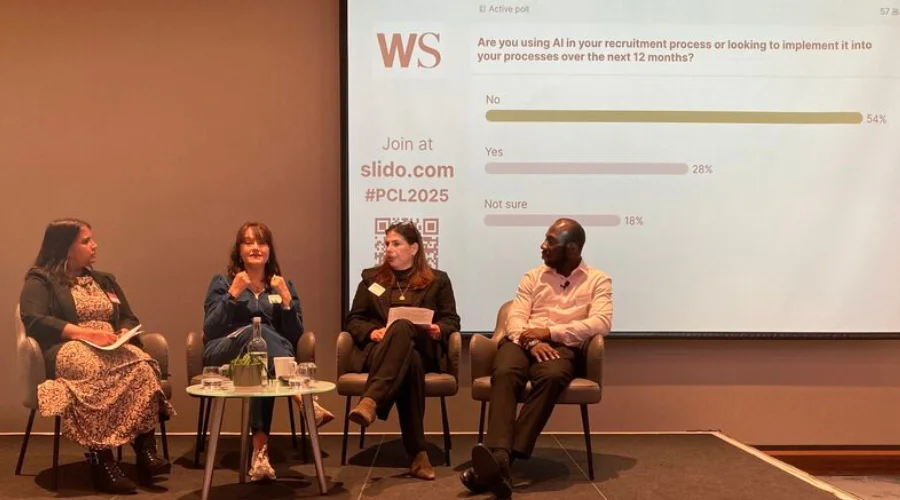
Quick CV Dropoff
Want to hear about the latest non-profit and public sector opportunities as soon as they become available? Upload your CV below and a member of our team will be in touch.

In the charity sector, the need to attract, recruit, and retain the right talent is critical, but we understand that managing costs, particularly in recent years, is crucial too. Charities are often operating on tight budgets with increased demand for their services, and understandably want to reduce recruitment spend where possible, which could include agency fees. However, effective workforce planning remains essential for delivering on an organisation's mission, and the services, expertise and insights of a trusted and well-established recruitment consultancy can prove invaluable in supporting this plan.
Findings from the TPP Recruitment – Non-Profit Salary, Rewards & Retention Survey 2024 highlight the challenges charities face in workforce planning. While 79% of respondents recognise its importance, almost half do not have a strategy in place. 77% reported that they do not have a dedicated team for workforce planning, which is understandable when sometimes limited resources are available, backed up by 66% stating just that - a lack of adequate resources. This is a significant issue when 61% stated that workforce planning directly impacts their ability to meet their organisation’s goals, and 42% admit that current efforts are not effective in addressing skill gaps, needed both now, and more importantly, in the future.
Given these challenges, how can charities achieve a balance between cost-effectiveness and securing the right talent to meet some of their strategic objectives?
This is where partnering with a trusted, specialist recruitment consultancy can help. In addition to being able to provide tailored recruitment support when there is a genuine or urgent need, a consultancy like TPP can help inform an effective, achievable workforce plan. This is because they can help you shape a strategy that is reflective of current market conditions, considers skill trends and shortages, focusses on adopting inclusive recruitment processes and has direct and ongoing access to candidate insights and feedback.
Working collaboratively with your trusted recruitment partner can help you deliver to the needs of your organisation and associated stakeholders, including volunteers, who are a critical part to any charity workforce strategy too.
So how can your recruitment partner support you with your workforce planning in 2025?
1. Developing a cost-effective workforce plan
While charities rightly focus on reducing overheads, the lack of a well-structured workforce plan can lead to higher costs in the long term. We often see how repeated recruitment efforts, and having unfilled roles, often for months at a time, disrupt operations and hinder a charity's ability to stay focused on its core activities and services.
A recruitment consultancy can assist in developing a bespoke workforce planning strategy that anticipates future needs which can help to mitigate unnecessary hiring costs. They are also well placed to support in helping to identify key skill gaps and advising on how realistic it is to hire in certain skills vs perhaps, developing the required skills in-house, which also supports better retention of existing employees.
Consultancies can help to ensure that charities are not forced into costly, last-minute and often rushed, recruitment efforts. Instead, they can take a proactive approach, reducing the risk of disruptions and enabling a more controlled, budget-friendly hiring process that is much more likely to succeed.
2. Providing market insights to inform recruitment decisions
One of the most valuable services a recruitment consultancy should be offering is up-to-date insights into the current market. This is particularly important for charities that need to remain competitive in attracting talent and who need valuable insight into what other organisations offer both in terms of pay and benefits, working conditions, policies, training and development and career progression pathways. These are all factors that are important to consider when you are potentially competing for skills and talent in a relatively small sector, such as the charity sector, particularly when you can’t compete on salary alone.
By using a trusted, specialist consultancy to provide data lead insights to inform your recruitment decision, you are more likely to have a clear understanding of what is realistic and achievable.
3. Efficient recruitment across all levels
While it is understandable for organisations to reduce over-reliance on external agencies and the associated costs, there are many situations when the expertise of a recruitment consultancy is not only necessary but can save money in the long run. For example, when recruiting for hard-to-fill or very niche roles, which are both common in the charity sector.
In fact, our data indicated that 37% of organisations reported struggles with recruitment in the past year, citing a lack of available candidates, unsuitable candidates, salary constraints/tight budgets and a lack of brand awareness as the main reasons for this. Pro bono Economics also recently reported that 57% of vacancies in the charity sector are hard to fill. So, it is important to remember that the time and resources spent on finding the right candidate in-house can far exceed the cost of working with an external recruitment consultancy.
Recruitment consultancies have extensive active and passive networks and a wealth of knowledge to efficiently source candidates at all levels, from entry to Board level. Working with agencies often results in a faster, more efficient recruitment process that saves time and allows for a wide reach of suitable applicants, whilst promoting the organisation as a desirable place to work.
4. Improving retention and reducing long-term costs
A key element of workforce planning is not just attracting talent but retaining it. High turnover can significantly increase recruitment costs and disrupt operational and service continuity. A specialist charity recruitment consultancy aims to align candidates’ aspirations with the organisation’s values and mission, ensuring that employees are not only qualified and suitable for the role, but committed to staying and having an impact long-term. This reduces the costly cycle of staff turnover and rehiring, which can strain already tight budgets.
5. Supporting charities with immediate, flexible staffing needs
Having access to a trusted partner who can step in when needed can make all the difference, particularly during periods of change, growth, or emergencies. Recruitment consultancies offer flexible and fast services, meaning charities can access support on a project-by-project basis or during particularly challenging recruitment campaigns.
When it comes to staffing, planning for, and expecting the unexpected, is so important and your recruitment partner should always be on hand to help with those immediate, flexible staffing needs. There are many reasons you may need to access temporary staffing solutions, for example: a lack of careful succession planning means that when critical senior leaders leave, interim cover is often needed whilst a permanent campaign is undertaken, or when a vacant role hinders operations and puts pressure on existing employees.
The right consultancy can provide targeted, efficient support, ensuring your charity doesn’t lose time or resources trying to manage recruitment in-house when the situation calls for access to suitable professionals that are available immediately.
6. Use consultancies as strategic partners, who add value beyond recruitment services
Recruitment partners should demonstrate their value beyond simply providing recruitment services by offering workforce planning advice that helps charities take a more informed approach to their staffing needs that will support them longer term. This includes supporting diversity and inclusion initiatives which are becoming increasingly important for charities, providing relevant market data on future talent trends, and helping to identify and build a robust talent pipeline for future skills needed within the organisation.
By working with a consultancy as a strategic partner, charities can gain a deeper understanding of the challenges and opportunities in their talent landscape, ensuring they are prepared for the future without relying on ad-hoc, reactive recruitment efforts that are often costly.
Balancing cost and value
The TPP Recruitment - Salary, Rewards & Retention Survey 2024 clearly highlights that while workforce planning is vital, many charities are struggling to implement effective strategies. While reducing recruitment costs is a priority for charities, there are times when partnering with a trusted specialist recruitment consultancy can provide essential support.
By leveraging the expertise, insights, and networks of a specialist recruitment consultancy, you will have access to resources that should assist you with doing your own recruitment more effectively by developing realistic, customised workforce plans which can help to reduce time-to-hire, improve retention rates, and in fact lower the long-term costs of recruitment. With the right partner, recruitment doesn’t have to be a necessary evil but rather, a strategic investment that strengthens your workforce strategy and enables the organisation to thrive.
To find out how TPP could support you with your workforce planning in 2025 contact the team here or call 020 7198 6000.